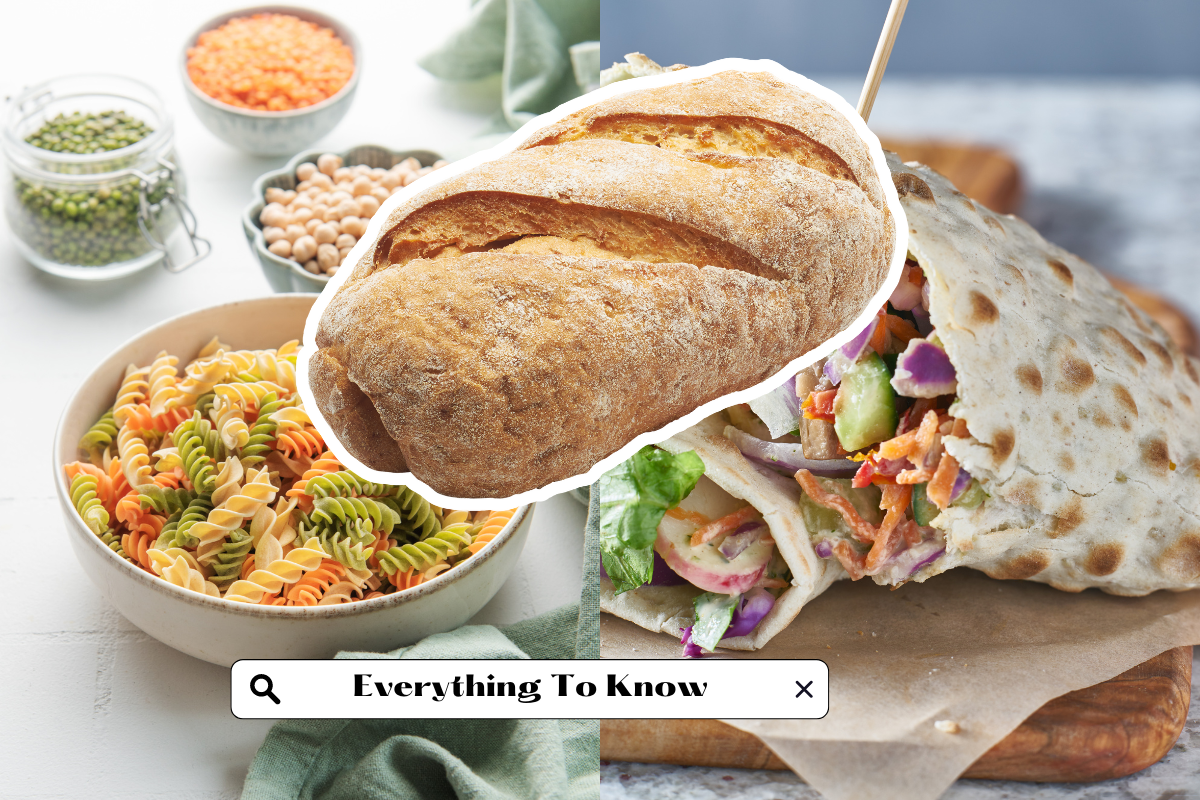Gluten-Free Snacks: Everything to Know
- Wellness

- Written byYour Local It Girl
- |05/10/2024
Gluten-free snacks are becoming increasingly popular due to rising awareness of celiac disease and gluten intolerance. These snacks, free from wheat, barley, and rye, offer delicious alternatives to traditional snacks, including chips, crackers, and baked goods. With expanding product lines from various manufacturers, gluten-free snacks cater to the growing demand among health-conscious consumers.
Importance of Gluten-Free Diet
A gluten-free diet is essential for individuals with celiac disease and gluten sensitivity to manage symptoms and prevent long-term health complications. Eliminating gluten from the diet is crucial for alleviating gastrointestinal discomfort and ensuring overall well-being. Additionally, many people adopt gluten-free diets to improve digestion, boost energy levels, and enhance their overall health, making gluten-free snacks an important part of their dietary choices.
Types of Gluten-Free Snacks
- Gluten-Free Dairy-Free Snacks
Similar to the previous category, these snacks are free from gluten and dairy ingredients. They include a variety of tasty options such as cookies, chips, and bars, making them suitable for individuals with lactose intolerance or dairy allergies.
- Gluten Lactose-Free Snacks
Designed for those who need to avoid gluten and lactose, these snacks provide alternatives that are gentle on the stomach. They include a range of options such as nuts, seeds, and dried fruits, ensuring delicious and satisfying snack choices without compromising on dietary needs.
- Are Mott’s Fruit Snacks Gluten-Free?
This category addresses the specific inquiry about the gluten content of Mott’s fruit snacks. It provides information to individuals wondering if this popular snack option is suitable for a gluten-free diet.
- Snack Factory Gluten-Free Pretzels
This category highlights a specific brand and type of snack, namely gluten-free pretzels from Snack Factory. It provides information about a popular snack choice for those following a gluten-free lifestyle.
Health Benefits of Gluten-Free Snacks
Impact of Gluten on Health
Gluten is a protein found in wheat, barley, and rye. For most people, consuming gluten poses no health risks. However, for individuals with celiac disease, an autoimmune disorder, gluten triggers an immune response that damages the lining of the small intestine. This damage impairs nutrient absorption and can lead to various symptoms, including abdominal pain, bloating, diarrhea, fatigue, and weight loss. Even small amounts of gluten can cause significant harm to those with celiac disease. Additionally, some individuals may experience non-celiac gluten sensitivity, characterized by similar symptoms without the autoimmune response. For these individuals, eliminating gluten from their diet can alleviate symptoms and improve overall health.
Advantages of Gluten-Free Diet
Adopting a gluten-free diet offers several advantages for individuals with celiac disease, gluten intolerance, or sensitivity. Firstly, it helps to manage symptoms such as gastrointestinal discomfort, bloating, and fatigue, leading to improved quality of life. Secondly, a gluten-free diet prevents long-term complications associated with untreated celiac disease, such as malnutrition, osteoporosis, infertility, and increased risk of certain cancers. Additionally, some individuals may experience improvements in energy levels, mental clarity, and overall well-being on a gluten-free diet. By eliminating gluten-containing foods and replacing them with nutritious alternatives, individuals can support their health and prevent gluten-related complications.
tritional Value of Gluten-Free Snacks
Gluten-free snacks can contribute to a balanced diet by providing essential nutrients in convenient and tasty forms. While it’s important to choose snacks that are nutrient-dense and minimally processed, many gluten-free snacks offer valuable nutrients such as fiber, protein, vitamins, and minerals. For example, snacks made from whole grains like quinoa, oats, and brown rice can provide fiber and complex carbohydrates for sustained energy. Nut and seed-based snacks offer healthy fats, protein, and micronutrients. Fruits and vegetables are naturally gluten-free and rich in vitamins, minerals, and antioxidants. By incorporating a variety of gluten-free snacks into their diet, individuals can meet their nutritional needs while enjoying delicious and satisfying treats.
How to Choose Gluten-Free Snacks
Tips for Selecting Gluten-Free Snacks
When choosing gluten-free snacks, it’s essential to read labels carefully and look for products that are explicitly labeled as “gluten-free.” Avoid snacks with ingredients like wheat, barley, or rye, and opt for naturally gluten-free options such as fruits, vegetables, nuts, and seeds. Be cautious of cross-contamination, especially in shared manufacturing facilities, and consider choosing snacks with third-party gluten-free certifications for added assurance.
Reading Labels for Gluten-Free Certification
Look for gluten-free certification symbols on packaging, such as the GFCO or Certified Gluten-Free labels. These certifications indicate that the product has undergone testing and meets strict gluten-free standards. Additionally, carefully read ingredient lists to identify any potential sources of gluten and be aware of hidden sources such as flavorings, seasonings, and additives.
Popular Brands Offering Gluten-Free Options
Many popular brands offer a variety of gluten-free snack options to accommodate individuals with dietary restrictions. Look for dedicated gluten-free brands as well as mainstream brands that clearly label their gluten-free products. Some well-known brands offering gluten-free options include KIND, Enjoy Life Foods, Udi’s, and Glutino.
Conclusion
- Final Thoughts on Gluten-Free Snacking
In conclusion, adopting a gluten-free diet can be beneficial for individuals with celiac disease, gluten intolerance, or sensitivity. By choosing carefully labeled gluten-free snacks and exploring homemade options, individuals can enjoy a varied and satisfying diet while minimizing their exposure to gluten.
- Recommendations for Incorporating Gluten-Free Snacks into Daily Diet
Incorporating gluten-free snacks into your daily diet can be easy and enjoyable with the right approach. Plan ahead by stocking up on gluten-free snacks at home, and pack portable options for on-the-go convenience. Focus on whole, nutrient-dense foods like fruits, vegetables, lean proteins, and healthy fats to ensure a well-balanced diet. If you have specific dietary concerns or restrictions, consult with a healthcare professional or registered dietitian for personalized guidance and support.
Related Posts
FOLLOW @YOURLOCALITGIRL
ELSEWHERE
0.2k
11k
Subscribers
0.2k
FOLLOW @YOURLOCALITGIRL
ELSEWHERE
0.2k
11k
Subscribers






